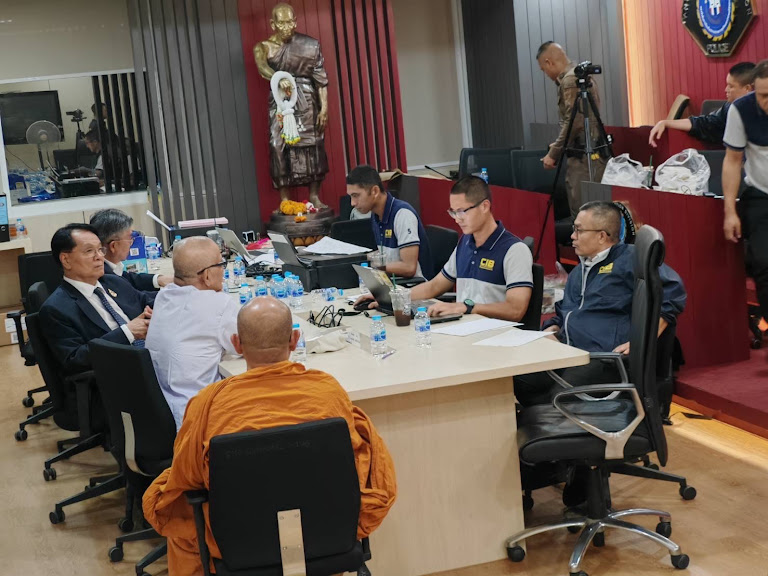Thai Abbot’s Gambling Debts Expose Temple Corruption Scandal
Following embezzlement charges, the Thai abbot’s online gambling and a loan to a female associate reveal systemic oversight failures.

The arrest of Phra Dhammavajiranuvatara, the abbot of the renowned Wat Rai Khing temple in Nakhon Pathom province, on charges of embezzling 300 million baht—approximately $9 million—to fund online gambling and personal loans is more than just a lurid headline. As detailed in these recent findings, this incident exposes a deeply unsettling intersection of faith, finance, and the temptations of modernity within a traditionally conservative society. It forces us to confront uncomfortable questions about accountability, oversight, and the vulnerabilities inherent within even the most revered institutions.
The details are, frankly, shocking. According to Police Lieutenant General Jirapop Phuridet, undercover officers spent nearly seven months infiltrating the temple following reports of the abbot’s alleged misappropriation of funds. The investigation revealed a pattern of money transfers from temple accounts to external personal accounts, ultimately leading to online baccarat gambling websites. Furthermore, the abbot allegedly lent at least 40 million baht ($1.2 million) to a close female associate.
The swiftness with which the abbot surrendered and disrobed following the issuance of the arrest warrant suggests a degree of culpability, but the underlying issues are far more complex. This case highlights a breakdown, or perhaps a systemic weakness, in the mechanisms designed to prevent such abuses. While Thai law considers temple abbots officials, placing them under certain legal obligations, the actual enforcement and monitoring of these obligations appear to be inadequate.
The scandal also points to broader trends affecting religious institutions globally. The rise of online gambling and the easy access to capital, combined with potentially lax oversight, create fertile ground for corruption. Moreover, the abbot’s alleged personal relationship with Ms. Aranyawan, the recipient of a substantial loan, adds another layer of complexity, suggesting a potential blurring of personal and professional boundaries.
Consider the key factors at play here:
- Lack of Transparency: The ease with which funds could be diverted from temple accounts suggests a lack of transparency in financial management.
- Inadequate Oversight: The role of the Supreme Sangha Council in providing oversight needs scrutiny. What mechanisms are in place to prevent similar abuses?
- Cultural Norms: The respect afforded to religious figures in Thai society may inadvertently create a culture of deference that hinders accountability.
- Technological Temptation: The ubiquity of online gambling creates a new and readily accessible avenue for financial ruin, even for those in positions of power and influence.
The investigation, as stated by Police Major General Jaroonkiat Pankaew, will expand to include all involved parties and coordinate with the Supreme Sangha Council. This is a necessary step, but the challenge will be to implement systemic reforms that address the underlying vulnerabilities. It’s not just about punishing individual actors; it’s about fortifying the institution itself against future abuses.
The Wat Rai Khing scandal serves as a stark reminder that even institutions built on faith and tradition are not immune to the forces of corruption and the temptations of modernity. The true test of the Thai religious community will be its willingness to confront these uncomfortable truths and implement meaningful reforms that restore public trust.
This case has ramifications beyond Thailand. It raises questions about the responsibilities and vulnerabilities of religious leaders globally in a world increasingly driven by digital finance and its associated temptations. As such, the lessons learned from the Wat Rai Khing scandal should serve as a wake-up call for religious institutions worldwide.









